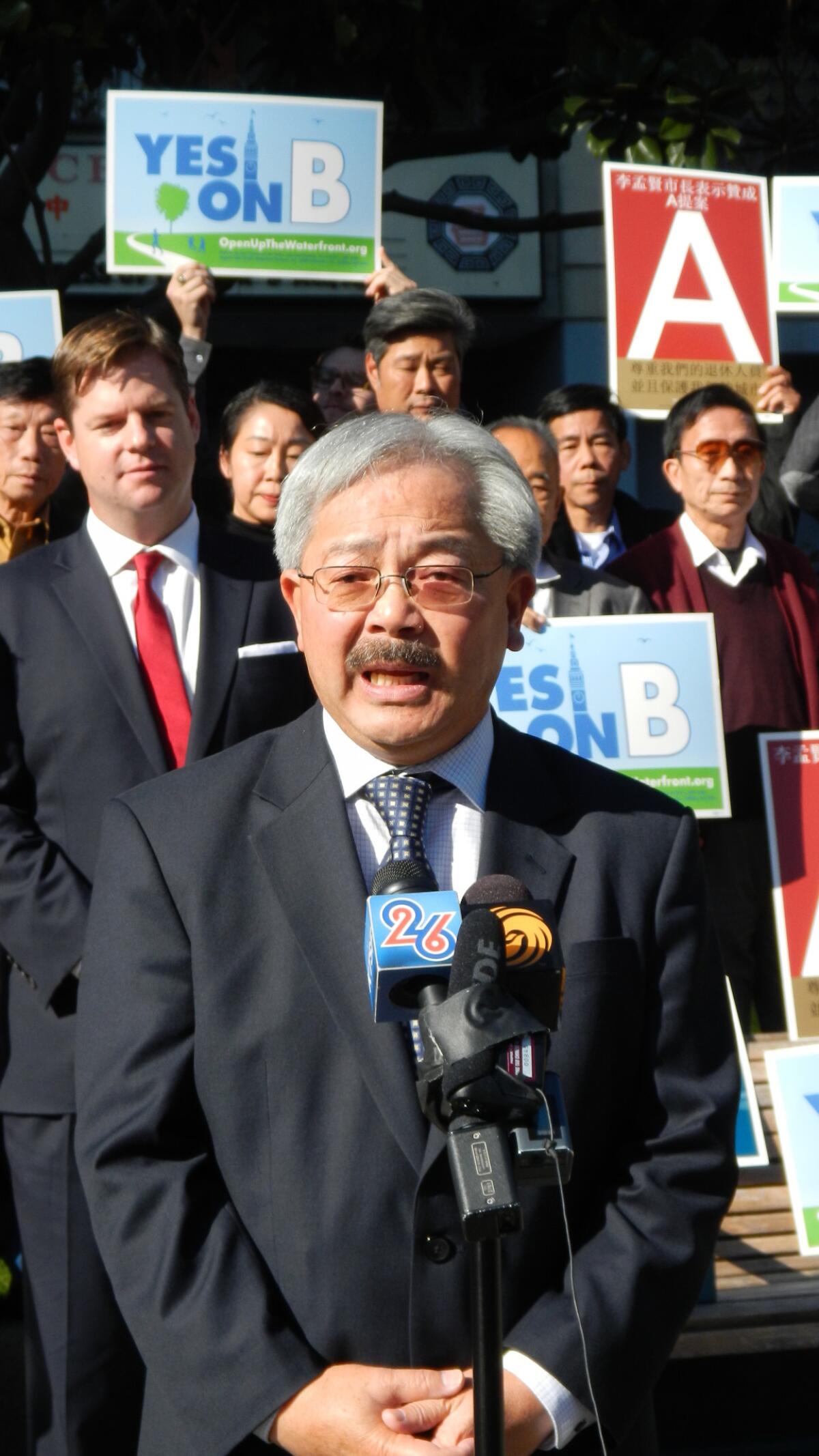San Francisco mayor to unveil housing affordability plan

SAN FRANCISCO — Mayor Ed Lee has what many city leaders would consider high-class problems: The unemployment rate recently dropped to 5.2% thanks to a flood of new technology companies. A building boom is underway after years of recession, dotting the skyline with cranes.
But with plenty has come displacement of lesser-haves and an identity crisis for a city that has long considered itself welcoming to all, and is now deemed the nation’s least affordable. Cultural rifts are deepening, with tenant advocates staging protests to block the hulking private shuttle buses that transport tech commuters to and from Silicon Valley.
At his annual State of the City address Friday morning at a construction site, Lee plans to unveil a plan to tackle the housing affordability crisis, and call on the increasingly fractious city to reunite with common purpose.
“I’m never going to let go of jobs. Anyone thinking about affordability knows that you have to have jobs, and good jobs,” said Lee, who has embraced the tech boom but says he still hews to the values he honed as a Chinatown tenant activist decades ago. But “it’s important … that we put it in context, in light of people’s fears, anger.”
In an interview Thursday in advance of his address, Lee said he will roll out a goal to create 30,000 housing units by 2020. Most would be newly constructed, some would be rehabilitated.
More than half, he said, would be within financial reach for middle-income families earning up to 150% of the area’s median income (about $146,000 for a family of four) and 30% would be “permanently affordable” for low- and moderate-income households (those earning less than 80% and 120% of median income, respectively.)
The roughly 5,000 units opening per year would significantly exceed a record high of 3,700, in 2007, and dwarf the totals in recessionary times. In 2011, for example, only 260 new housing units were created in a city that needs 90,000 by 2040, according to a recently crafted regional plan.
The target is part of a broader plan Lee will outline in his 10 a.m. address that is geared to keeping — or restoring —- affordability to San Francisco as it undergoes economic transformation.
It also includes a push in Sacramento to reform the Ellis Act, which has driven tenant displacements, thereby protecting the city’s dwindling rent-controlled housing; and an initiative that will target small buildings of five to 15 units that are about to change hands and offer incentives to non-profit housing organizations to buy and maintain them without evictions.
“That’s where the speculators attack,” Lee said of the smaller buildings.
Lee also plans to announce a doubling of the amount of down-payment assistance — to $200,000 — available to eligible new homeowners; and creation of a distinct assistance program geared specifically to teachers.
In addition, the city will speed approvals for new construction, prioritize those that are 100% affordable, and roll a proportion of property taxes gleaned from new developments back into those projects to increase the number of units that can be offered at affordable rates.
A burst of market-rate million-dollar condominiums has spurred some activists to call for a moratorium on such construction while affordable units are created. Lee has rejected the approach, saying the dollars flowing into the city’s Housing Trust Fund from market-rate developers are key to a broader solution.
Lee said his overarching goal for his 2014 address is to send a signal that San Francisco can push through its crisis without the scars of a culture war.
“I’ve got to lift people out of some cynical attitudes into ‘how can we move forward for everybody,’” he said. “We have to get off isolated viewpoints and get back to what this city is all about.”
Twitter @leeromney
More to Read
Sign up for Essential California
The most important California stories and recommendations in your inbox every morning.
You may occasionally receive promotional content from the Los Angeles Times.











